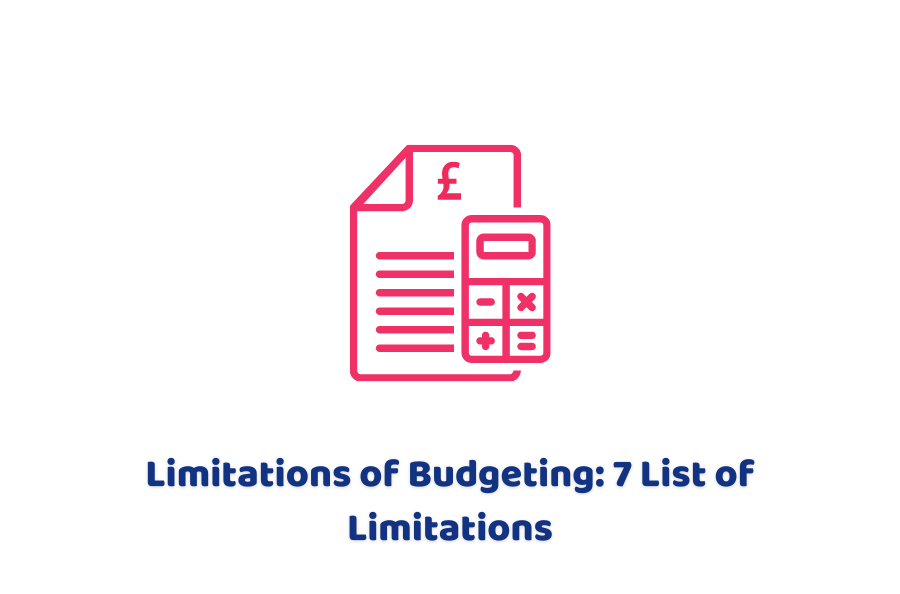Budgeting is central to the success of a company’s finances. So, suppose you’re looking to plan and execute your budgeting for the upcoming financial years. In that case, you must learn the limitations of budgeting to avoid any discrepancies and waste of resources later.
Budgets are not accurate and cannot go as smoothly as you predicted for various reasons. This blog will discuss why the road toward seamless budgeting is patchy and bumpy. Moreover, we will shed light on budgeting restrictions that hinder the process of carrying out the expenses smoothly and efficiently.
What is Budgeting?
Budgeting is a process of allocating the resources among different expenses of a company in the next financial year. This process utilises the data and past trends to make an estimation of future revenues and costs.
In other words, budgeting is a forecast developed to follow a planned financial year. It provides an outlook on the future, and the resources are directed in that direction to achieve the financial goals.
Want accurate budgeting professionals, avoiding any limitations of budgeting? Give us a call or drop us a message without hesitation now!
Limitations of Budgeting
Following is a list of limitations of budgeting. All of these limitations are part of every budgeting process in one way or the other.
1- Inaccurate Budget Estimations
The major limitation to the development and execution of the budgeting process is the prediction based on the estimation. We follow the past trends and ignore the future uncertain events, assuming them as constant. On the other hand, the actual revenues and costs may vary due to unpredictable circumstances.
2- Demands Time, Effort & Money
Budgeting is a cumbersome procedure, and it takes into account certain factors. Moreover, it requires the services of qualified staff to analyse and estimate the growth of future revenues and allocate them among different departments and operations.
Besides, the budgeting process consists of one-year planning. In other words, this process becomes costly and time-consuming.
3- Encourages Reckless Spending
The financial managers are tempted to increase the budget allocation every year based on the previous year’s budget. So, they can demand expanding the budget of the expenses were higher in the last year. On the contrary, the allocations can prove more extravagant in nature when the managers resort to an incremental budget.
4- Non-flexible Budgeting
Sometimes, there is no room for a change in the budget of a financial year due to the tight allocation of resources. As a result, if you need some additional allocation to meet a new demand or expenses, the budgets prove too rigid to accept any adjustments.
Because such adjustments make the whole budgeting look upside down and require a complete overhaul of the budget structure.
5- Principal-Agent Problem
Principal-Agent problem arises due to the managers’ personal interests. When managers prefer their interests and perks over the company’s goals, then a principal-agent problem arises. As a result, the managers tend to overestimate and underestimate the budgeting processes, tampering with the actual revenue and cost estimation.
6- Lack of Consensus
Budgeting requires a unanimous decision among all the company departments over the allocation of the budget. Such consensus is challenging to reach as every department vies for the maximum budget allocation in a financial year. So, the manager has to take into account the real needs of each department and then allocate it among different departments, but it is a hard nut to crack as the agreement is difficult to achieve.
7- Too Financial in Nature
Budgeting considers only the financial aspects of a company, ignoring the subjective and qualitative aspects. For example, revenues and expenditures are not the sole factors contributing to a company’s growth.
On the other hand, the quality of the service or products also helps improve the allocation of resources. And budgeting does not take into these factors.
Final Thoughts
In sum, the budgeting process is not as efficient as it seems to be. The managers take into account their personal gains and ignore what is in the company’s best interests. Besides, the budgeting predicts the future revenues and allocates them among different departments. It is more likely the estimation will prove inaccurate, and the financial year will deteriorate the company’s finances.
So, while preparing a budget, the managers are supposed to take into account the limitations of budgeting to avoid any losses, monetary and non-monetary. It is difficult to avoid all of these problems, but it is possible to keep them as minimum as possible.
Accountingfirms is fast and smart in delivering the best accounting services that can manage your budgeting process transparently and efficiently. Let’s hire today!
Disclaimer: This article provides general commentary on, and analysis of, the subject addressed. We strongly advise that you consult an attorney or tax professional to receive legal or tax guidance tailored to your specific circumstances.

